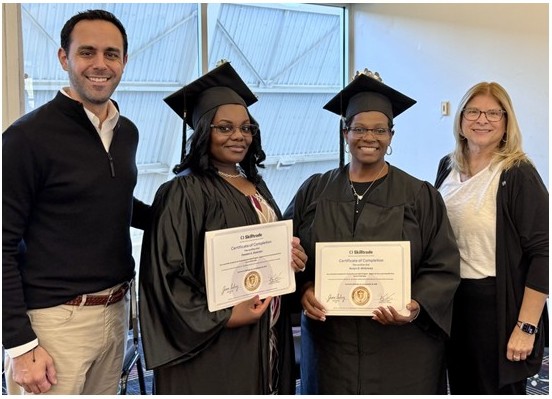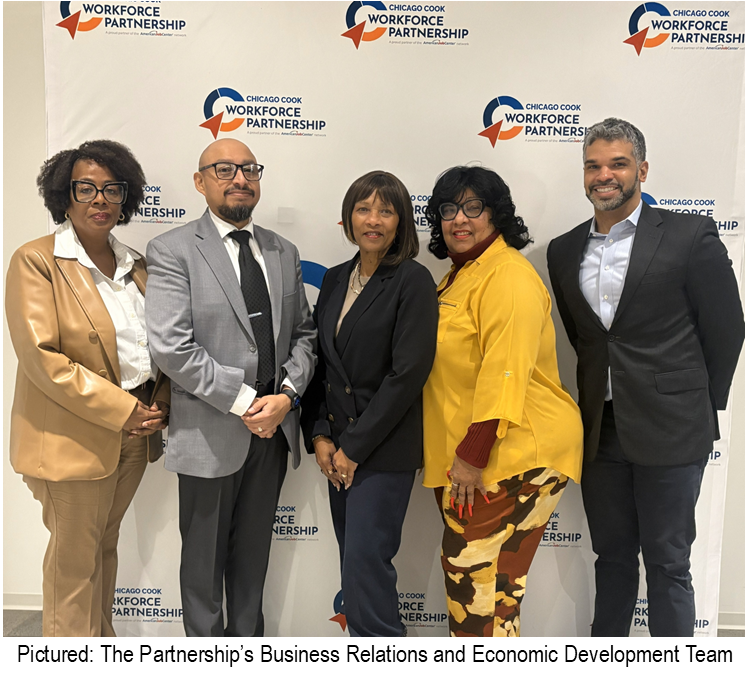Across the country, sector partnerships are reshaping how communities connect people to meaningful careers. By bringing together workforce boards, employers, and training providers, these collaborations ensure that education leads directly to employment aligning local talent pipelines with real labor market demand.
One powerful example of sector partnerships is taking place in Detroit, Michigan where Detroit at Work, Focus: HOPE, and Skilltrade have partnered to launch a healthcare career pathway for local residents. Through this initiative, participants completed Skilltrade’s hybrid Certified Clinical Medical Assistant (CCMA) training, a program that combines flexible online coursework with bi-weekly clinical hands-on labs followed up with externships in local healthcare offices and settings.
Following Skilltrade’s October 10th graduation, newly certified participants are now entering externships across Detroit’s healthcare system, gaining valuable clinical experience. Several graduates have already received employment offers from their externship sites, a clear reflection of how industry-driven strategies create results when employers co-design training that meets real hiring needs. This approach not only prepares Detroit residents for in-demand healthcare roles but also demonstrates how flexibility and innovation in program design open doors for working adults to advance their skills and careers.
This collaboration also reinforces the importance of integrated systems and shared accountability in workforce development. Detroit at Work provided training support through workforce funding, Focus: HOPE offered wraparound services to remove barriers, and Skilltrade delivered the career-aligned instruction that leads to national certification. By coordinating these resources and tracking outcomes together, the partners built a seamless system that supports worker mobility guiding participants from training to externship to employment.
Detroit’s partnership brings the MUS Workforce Works!! framework to life, showing how strategy becomes action. By grounding programs in industry demand, supporting worker mobility, and strengthening accountability across systems, partners create a model that is both practical and powerful. This coordination delivers measurable results and shows that when workforce systems align around shared goals, both people and businesses thrive.






